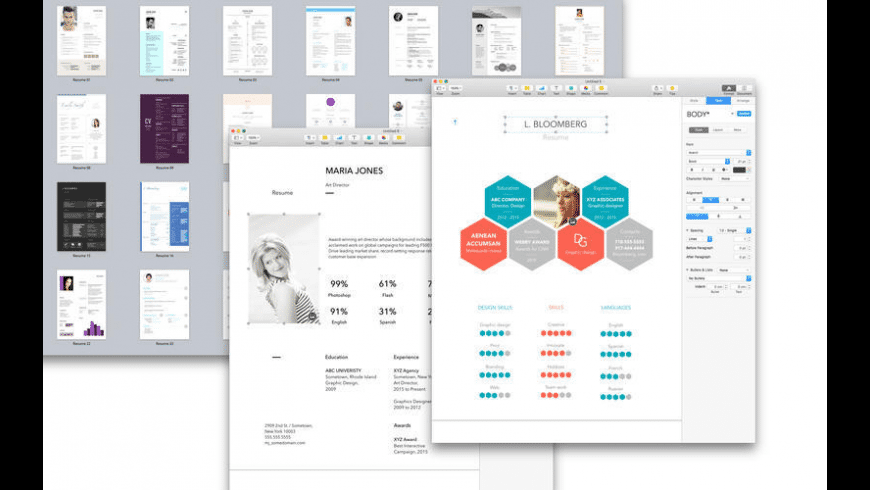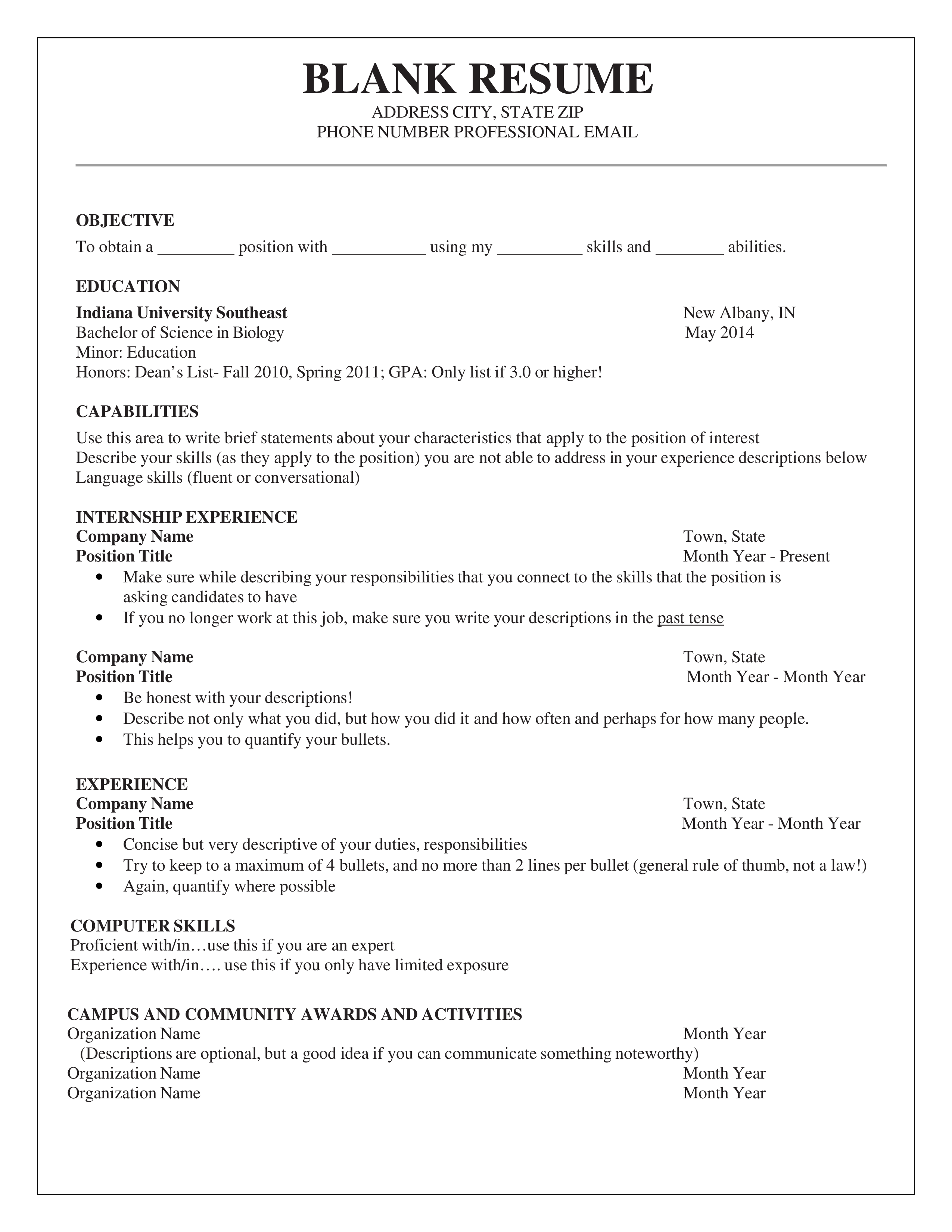A document to present your skills and qualifications effectively and clearly.

If you’re pursuing opportunities in academia or looking for work outside the United States, it’s important to create a CV. This document will provide employers with a highly detailed account of your professional and educational history to decide whether to move you forward to the next step in the hiring process.
Formatting your CV is necessary to make your document clear, professional and easy to read. There are three CV format options to choose from: chronological, functional and combined. To help you create a compelling CV, consider the following background information and examples.
Related: What’s the Difference Between a Resume and a CV?
A curriculum vitae, often shortened to CV, is a Latin term meaning “course of life.” A CV is a detailed professional document highlighting a person’s experience and accomplishments. Employers often require a CV when considering applications. This document shares an overview of your career history, education, relevant awards and honors, scholarships, grants, research, projects and publications.
Related: What is a CV?
A CV may also include professional references, as well as coursework, fieldwork, hobbies and interests relevant to your profession. You might also choose to add a personal profile that lists your skills and positive attributes to ensure employers have a well-rounded view of your personality and achievements.
Resume Cv Expert 3.0 Download
Your CV should include the following:
Contact information. Include your full name, address, phone number and email address.
Academic history. List all schooling from high school through postdoctoral (if applicable). Include the title of the degree you earned, the year you graduated and the name of the school.
Professional experience. Include the organization where you worked, the job title, the dates you were employed and a summary of your experience and achievements.
Qualifications and skills. List a combination of hard and soft skills you’ve developed throughout your career.
Awards and honors. For each award, add the name, year received, the organization that gave you the award and any pertinent details (such as how often it’s presented).
Publications and presentations. For publications, provide a full citation including your co-authors, date, summary, volume, page, DOI number. For presentations, provide the title, date and venue where you presented.
Professional associations. List the organization’s name, location or chapter and the dates of active membership.
Grants and scholarships. Provide the name of the grant or scholarship, date awarded and the institution that provided the award.
Licenses and certifications. Include the name of the license or certificate, the date you earned it and the institution that awarded it.
All three types of CVs should include the above information. The primary difference between formats is the order of these elements.
1. Chronological
This is the most common type of CV. For a chronological CV, list your academic history and professional experience first after your contact information. This type of CV focuses largely on your academic and professional experience.
- Contact information
- Academic history
- Professional experience
- Qualifications and skills
- Awards and honors
- Publications and presentations
- Grants and scholarships
- Licenses and certifications
- Professional associations
A chronological CV is best if you have consistent employment within the same industry, and your work experience displays advancement within your field.
Related: Chronological Resume Tips and Examples
This CV format places more emphasis on your skills, awards and honors. If you are writing a functional CV, you should place your relevant skills near the top under your contact information. In a functional CV, you will allocate more space to your qualifications, skills, awards and honors and less space to your professional experience. Here are the sections you should include:
- Contact information
- Qualifications and skills
- Awards and honors
- Academic history
- Professional experience
- Publications and presentations
- Grants and scholarships
- Licenses and certifications
- Professional associations

A functional CV may be the right choice if you have recently graduated and are entering the job market for the first time, have multiple gaps in employment or you’re changing careers.
Related: Functional Resume Tips and Examples
This CV type is a hybrid of the chronological and functional formats and allows adequate space for details about both your professional and educational history, as well as your skills and accomplishments. The elements you place first depend on your experience, career goals and what you believe is most relevant to the types of positions you’re seeking.
For example, if you’re hoping to earn a teaching position at a university and you’ve spent the past ten years as an educator, you should list your professional background first.

When it comes to formatting your CV, there are four more factors you’ll need to consider.
Related: 27 Proofreading Tips That Will Improve Your Resume
1. Choose the right font type and size
It’s critical your CV is legible and easy to follow. To improve readability, be sure to choose the proper font type and size.
The two primary font categories are serif and sans-serif. Serif fonts (Times New Roman, Courier, Georgia) have small, decorative flourishes while sans-serif (Helvetica, Arial, Geneva) fonts do not. It’s best to choose a sans-serif font because, in most cases, they’re easier to read.
Additionally, keep your text between 10–12 points. While it can be tempting to reduce your font size to reduce the number of pages, you should never sacrifice readability for length.
Related: Best Font for a Resume: How to Choose Type and Size
Be sure to check your CV margin size. Margins that are too large will leave too much white space on each page while margins that are too small can make the page seem over-filled. A good rule is to keep your margins between 1–1.5 inches.
3. Utilize your space effectively
CVs can become lengthy, especially if you’ve been in your industry for several years and have amassed a great deal of experience. To ensure you’re using space effectively and your CV is easy to read, consider using the following techniques:
Bulleted lists: Make lists, (such as your collection of skills or awards) easier to consume by adding small bullets.
Section headers: Distinguish section headers from the rest of your CV content by making them bolder, larger or underlined.
Bolded words: In addition to section headers, consider bolding other important words, such as your name and job titles, to set them apart.
Before you send your CV to employers, always take time to check your spelling, grammar and syntax. A clean, error-free CV increases readability and demonstrates professionalism.
A well-composed CV shares all the most essential information employers need when considering you for job opportunities. By making sure your CV is comprehensive, correctly formatted and easy to read, you’re one step closer to landing the job you want.
Related: Resume Format Guide (With Examples)
Ann Kowalski
1000 Second Ave. NE | Portland, OR 97205
503-555-0123 | a.kowalski@email.com
Education
Masters of Communication, 2017
University of Denver
Experience
University of Georgia Center for Computational Chemistry
Research Assistant 2009–2011
- Conducted physical and chemical laboratory tests to assist research scientists in qualitative and quantitative analyses.
- Operated experimental pilots and assisted in developing new chemical engineering processes.
- Maintained all laboratory equipment to ensure a clean and safe work environment for students and faculty.
Skills
Project management
Curriculum planning
Fluent in English and Mandarin
Awards and Honors
Wolf Foundation
Wolf Prize in Medicine, 2018
Awarded to up to three individuals globally, each year, for achievements in medical science.
Publications and Presentations
Understanding Auditory Sensitivity Issues in Children with Autism
2016, World Autism Organization Conference
Professional Associations
American Society of Journalists and Authors, New York (2010–Present)
Grants and Scholarships
The Oglesby-Snyder Grant for Equity and Cultural Diversity, 2012
Association for Applied Sport Psychology
Resume Cv Expert 3.0 Login
Licenses and Certifications
Certificate in Sociological Practice, 2004
Association for Applied and Clinical Sociology
Comments are closed.